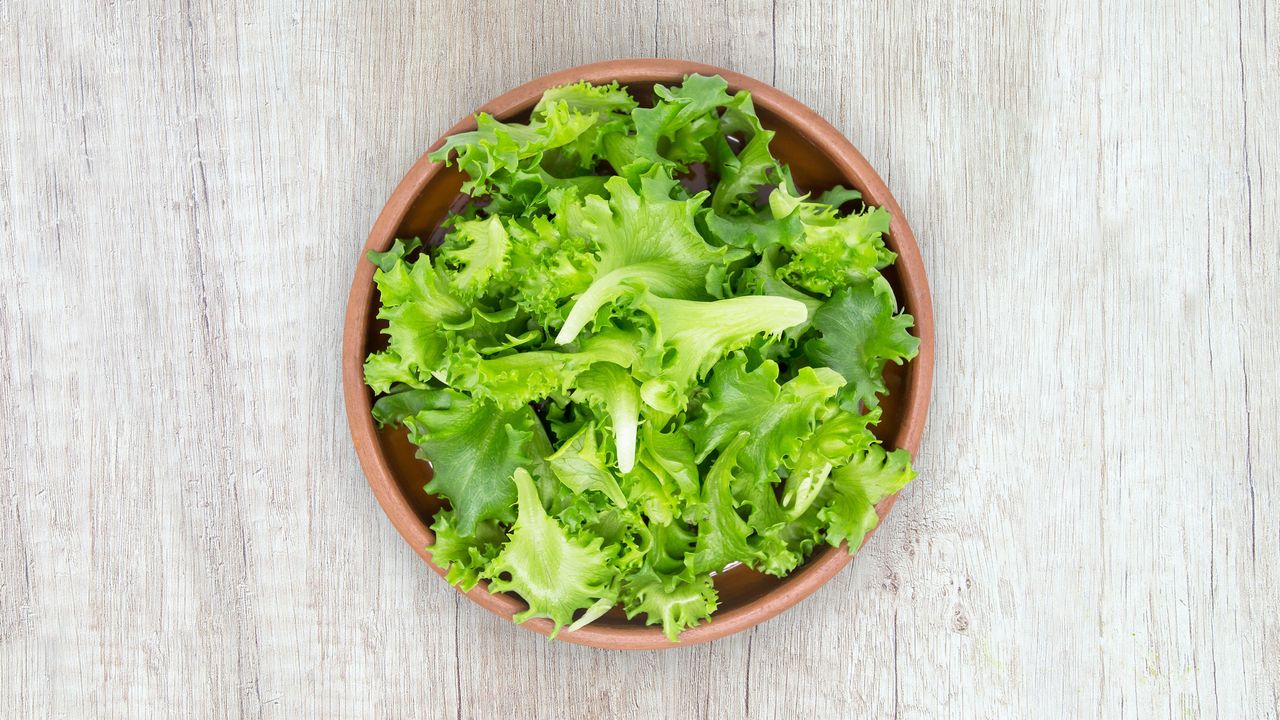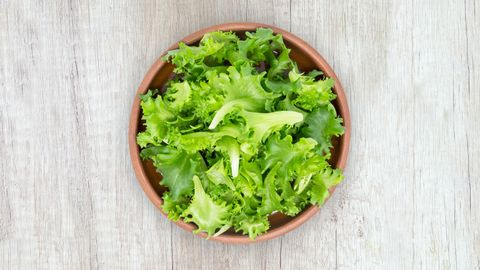
Lettuce Engineered To Produce Hormone for Astronauts

Lettuce Engineered To Produce Hormone for Astronauts
Complete the form below and we will email you a PDF version of"Lettuce Engineered To Produce Hormone for Astronauts "
Long-term space missions will expose humans to extended periods of microgravity, resulting in a loss of bone mass. Could transgenic lettuce, engineered to produce a hormone capable of enhancing bone growth, offer a solution?
人体适应太空飞行
对于我们许多人来说,一生中的太空之旅不可能。
For astronauts however, frequent long-haul space flightscan take their toll on the human body。我们越多地从地球上冒险,重力越低,这意味着太空旅行者可以花费长时间的时间生活在微重力条件下。这可能的结果是骨骼质量的减少。据估计,在空间六个月的旅程中,股骨近端损失大约10%的质量。Recovery upon returning to Earth can take up to four years.
“Bone is constantly broken down and reformed to regulate calcium in the blood and to repair microfractures. In microgravity, the balance of these processes shifts such that there is a net loss of bone mineral density,” explainsKevin Yates, a researcher in theMcDonald/Nandi laboratoryat the University of California Davis (UC Davis). “The shift likely occurs because many bones no longer bear a gravity-induced load. A fracture in space or on Mars would be dangerous and difficult to treat.”
Yates’ research is part of theNASA立方体(Center for the Utilization of Biological Engineering in Space). The goal of CUBES is to recyclein situresources to drive the manufacturing of products that can meet a long-standing need for space missions. He is currently focusing on the development of transgenic foods that can synthesize biologically active substances to help combat the adverse effects space travel can have on the human body.
At thespring meeting of the American Chemical Society(2022), Yates and colleaguespresented their latest research,developing a transgenic lettuce to target the issue of bone density loss.
What do we mean by transgenic?
转基因是指通过人工手段引入的另一种物种的DNA序列。
Oral administration via lettuce consumption
Drugs can be prescribed to stimulate the formation of bone, such as a medication containing a peptide fragment of the human parathyroid hormone (PTH). However, administration of such medication is often via injection, posing an inconvenience as transportation and storage of syringes and vials is required – not ideal when there are specific weight restrictions for space missions.
But, astronauts have to eat – right? What if there was a method by which they could obtain the medication via their daily food intake? That was the idea behind Yates and colleagues’ latest work. By attaching the fragment crystallizable (Fc) domain of a human antibody to the sequence encoding PTH, they generated a stable and bioavailable form of the medication, PTH-Fc.
Next, they sought methods by which lettuce could produce the peptide fragment.Agrobacterium tumefaciens是一种植物病原体,可感染植物伤口部位并通过将DNA传递到宿主植物细胞中引起特定疾病。对这一过程所涉及的分子生物学的广泛研究和研究导致A. tumefaciensbecomingthe most popular bacteriumto deliver specific genes into plant cells – a method known as genetic transformation.
UsingA. tumefaciens, Yates and colleagues inserted the gene encoding PTH-Fc into lettuce plant cells, and then studied protein levels to decipher whether the peptide was being expressed. On average, the plants were found to express between 10–12 mg of PTH-Fc per kg of fresh lettuce. Space travelers eating the transgenic lettuce would therefore require approximately 380 g of lettuce each day to obtain the required dosage. While lettuce can be delicious in a summer salad or a sumptuous burger, as the saying goes – you can gettoomuch of a good thing. To reduce the quantity of lettuce that the astronauts would be required to eat, Yates is screening the transgenic cell lines: “We are measuring the amount expressed in different lines of transgenic plants and selecting those which express the highest amount,” he says.
Regulatory approvals on Earth Vs space
生菜尚未获得研究团队的味觉测试,因为尚未确定其安全性。但是,将进行彻底的测试,耶茨证实:“通常,经过转基因食品受到严格调节(因此),因此对安全性进行了彻底的测试。我们没有通过增加干旱耐受性来改变生菜中的生长特征。我们仅添加了一个用于PTH-FC生产的基因。PTH-FC的安全性和功效将通过临床试验来建立。”
The tight regulations Yates refers to can be a barrier to the accessibility of transgenic foods. Regulatory approvals must be obtained before such products can be marketed, at least on Earth. But what about in space? “I am not an expert on this, but it's likely that theUnited States Department of Agriculture (USDA) and the US Food and Drug Administration (FDA) would regulate these foods,” says Yates.
The next steps for advancing this research, according to Yates, is to establish thepharmacokineticand pharmacodynamic behavior of the transgenically produced PTH-Fc.
The team’s vision for transgenic foods extends beyond the leafy greens of the salad bowl, though. In addition to the hormone producing lettuce, the research team are working on a number of other model crops, such as rice, wheat and tomatoes. “We chose lettuce [for this research] because we know it can be grown successfully in microgravity and would likely be included as a crop on long-duration missions. It could be possible to produce biopharmaceuticals in these other plants as well. As part of CUBES, another food source,关节螺旋藻(commonly known as spirulina), has been modified to produce acetaminophen,” Yates says.
使用植物制造生物活性化合物并不是一个新颖的概念。这是合成生物学field, whereby living organisms are “engineered” to produce a specific function or product, such as a biopharmaceutical, a biosensor or a biofuel, to list a few examples. The work of Yates and his colleagues could have more local implications here on Earth, as transgenic foods present an opportunity to overcomeglobal issues in agriculture, such as food shortages and the effect of climate change on crops. “Plant-based production offers a host of new solutions to many diverse kinds of challenges,” Yates concludes.
凯文·耶茨(Kevin Yates)正在与技术网络高级科学作家莫莉·坎贝尔(Molly Campbell)讲话。捷克葡萄牙直播






